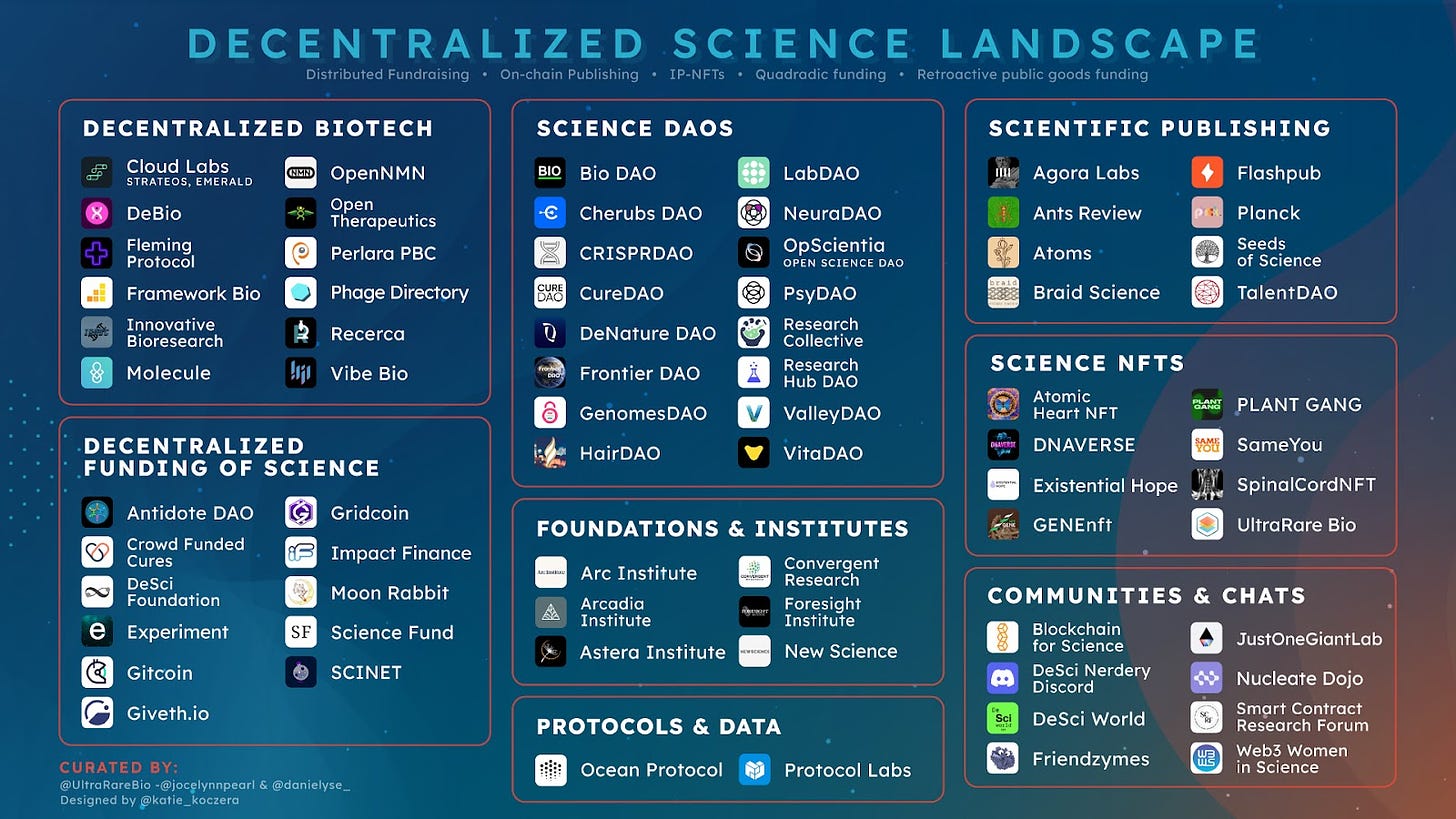Personal Science Week - 18 Aug 2022
Decentralized Science #DeSci, the Endominance microbiome test
Technology moves faster than science. Cool new gadgets and consumer-priced diagnostic tests are coming online faster than traditional Big Science can keep up. That’s the premise behind a new, crypto/web3 effort called Decentralized Science, the subject of our overview this week in NEO.LIFE.
Now a group of scientists and amateurs want to upend the existing government-academia-industry model of scientific funding by using blockchain, the same technology that powers cryptocurrencies like bitcoin. Anyone can participate in this new world of decentralized science, dubbed “DeSci,” and as a longtime personal scientist myself, I’ve recently joined a few of these groups. What I found was surprising—and encouraging
Read the article for details of our experience joining VitaDAO, an early effort to bring DeSci to longevity science, and after that be sure to check out these resources:
DeSci Wiki, curated by Jocelyn Pearl, is the best general reference, including links to just about every DeSci-related organization you can join.
The Ethereum Foundation website offers a lengthy DeSci Explainer. One section discusses funding:
Web3 has the potential to disrupt this broken funding model by experimenting with different incentive models developed by DAOs and Web3 broadly. Retroactive public goods funding, quadratic funding, DAO governance and tokenized incentive structures are some of the Web3 tools that could revolutionize science funding.
As with much else with crypto/web3, Twitter is a key resource. The DeSci-Web3 Twitter list is a good follow, with about 100 accounts that regularly tweet on DeSci issues.
Endominance MACO study
We wrote previously about the (free) microbiome test offered by Endominance and I’m happy to say we received the results as promised (and a $40 gift card, btw). The Microbiome, Anxiety and Cognitive Orientation Study (MACO) trial (registered at Clinicaltrials.gov) claims to have 2000 subjects already, with the intent to study the relationship between mental health and the environment. Recognizing that “environment” includes the intriguing links between human behavior and the microbiome, participation in their study involves both sending in a gut microbiome sample as well as a lengthy cognitive survey.
They sent us a 12-page personalized report called Cognitive Orientation Behavior Inventory (COBI), with their analysis of my personality along several dimensions including decision-making and social engagement styles. If you enjoy psychological personality inventories like Myers-Briggs and others, you might like this one too. For example, here’s what it concluded about my social skills:
If you know me in person, you’ll probably agree that this is an accurate summary. Like a horoscope, however, it’s general enough that it can describe many people, and ultimately what you do with the information is up to you.
About Personal Science
Listen to experts, but be skeptical. That's the idea behind Personal Science, where we use the techniques of science to solve personal problems, rather than as part of a job.



